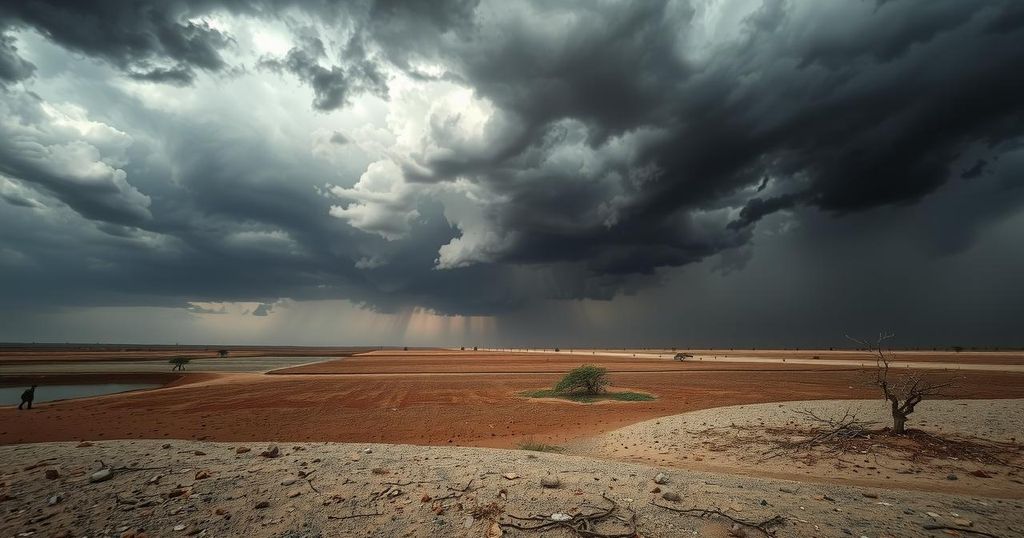Arrest of South Sudan’s Vice President Poses Severe Threat to National Stability
The arrest of Riek Machar, South Sudan’s First Vice President, has escalated tensions, raising fears of renewed civil conflict. The United Nations and various analysts have condemned the move, emphasizing the need for dialogue to prevent the country from descending into violence. Local sentiments reveal widespread concern about the impacts of ongoing political strife and violence.
The arrest of Riek Machar, South Sudan’s First Vice President, has escalated tensions in the nation, which risks descending into widespread conflict. This incident, marked by a convoy of armed vehicles storming his residence, signifies the deteriorating situation following a power-sharing agreement with President Salva Kiir. The United Nations has expressed grave concerns regarding the nation’s stability, warning that the country stands on the brink of a return to civil war, akin to the devastating conflict from 2013 to 2018.
Machar’s arrest, described as unconstitutional by party officials, involved the disarming of his bodyguards and delivery of unclear charges. The United Nations Mission in South Sudan (UNMISS) echoed these concerns, indicating that breaches of existing peace agreements would not solely devastate South Sudan but reverberate throughout the entire region, highlighting the urgency for peaceful resolution.
Since the power-sharing deal’s unraveling, President Kiir, at 73 years of age, has been accused of sidelining Machar through cabinet changes and arrests of over 20 of Machar’s allies. Instances of violence between factions loyal to both leaders have erupted, particularly in Upper Nile State, alongside reports of government attacks on military bases and training centers linked to the opposition.
Local residents express deep worry regarding the potential resurgence of war. Many, like Lilian Sukeji, emphasize the need for dialogue rather than conflict. Despite President Kiir’s assurances of a commitment to peace, violence has escalated in various regions, particularly manifested in ongoing clashes in Nasir County, underscoring the fragility of the current political landscape.
Analysts warn that the failure of both leaders to engage in meaningful dialogue amidst international pressure serves as a critical warning regarding the possibility of decentralized violence, making it challenging to control. International observers have reacted, prompting several countries to reduce their diplomatic presence in Juba, reinforcing concerns about the stability of South Sudan amidst these troubling developments.
The arrest of Riek Machar has dramatically heightened the risk of conflict in South Sudan, sparking international concern. The ongoing political power struggles and persistent violence threaten to unravel peace efforts established in previous years. Both domestic and foreign pressure mounts for dialogue among leaders, as the ramifications of continued hostility could lead to widespread instability within the nation and beyond.
Original Source: homenewshere.com




Post Comment